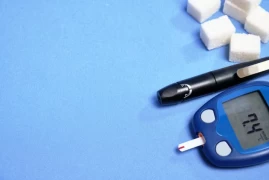
Weight Management After Diabetes Surgery
- Weight Management After Diabetes Surgery
- 1. Adhere to the Nutritional Plan
- 2. Maintain Regular Physical Activity
- 3. Seek Psychological Support
- 4. Don’t Neglect Regular Follow-ups and Check-ups
- 5. Embrace Lifestyle Changes
- In conclusion
Diabetes surgery has played a significant role in the treatment of type 2 diabetes in recent years. Following surgical intervention, many patients experience substantial weight loss and significant improvement in diabetes control. However, maintaining weight loss after surgery is crucial to sustaining the success of the operation and preserving overall health. In this article, I will discuss important considerations for preventing weight gain after diabetes surgery from the perspective of a General Surgery specialist.
1. Adhere to the Nutritional Plan
After diabetes surgery, you must make significant changes to your eating habits. This is vital to sustain weight loss and protect your overall health. During the postoperative period, your dietitian will provide you with a personalized nutritional plan. This plan will focus on limiting food intake, controlling portion sizes, and choosing the right foods.
- Prioritize Protein: Prioritizing protein intake during the recovery period is essential. Protein is necessary for preserving muscle mass and supporting metabolism.
- Eat Slowly and Mindfully: Eating slowly, thoroughly chewing your food, and consuming meals in small portions are necessary steps. This facilitates digestion and promotes a feeling of fullness.
- Monitor Fluid Intake: It is important to limit fluid intake before, during, and immediately after meals. Drinking fluids before and after meals can fill the stomach and prevent overeating.
- Avoid Junk Food: Avoiding high-calorie, low-nutrient foods is critical to preventing weight gain.
2. Maintain Regular Physical Activity
Engaging in regular exercise after surgery is indispensable for weight control. Exercise not only helps you burn calories but also speeds up your metabolism and helps preserve muscle mass.
- Walking: Light walking during the first few weeks after surgery enhances circulation and contributes to the healing process.
- Strengthening Exercises: As your recovery progresses, it is important to engage in resistance training to preserve and increase muscle mass. Exercises with light weights can be effective in this regard.
- Exercise Routine: Make your exercise program a habit. At least 150 minutes of moderate physical activity per week is recommended.

3. Seek Psychological Support
After diabetes surgery, you will experience not only physical but also psychological changes. Adapting to a new lifestyle after surgery may not always be easy. Receiving professional support during this process can help you succeed in weight control and maintain overall mental well-being.
- Support Groups: Connecting with others who have undergone similar procedures, sharing experiences, and discussing challenges can boost your motivation.
- Individual Therapy: Seeking support from a therapist for post-surgical stress, anxiety, and eating disorders is important.
4. Don’t Neglect Regular Follow-ups and Check-ups
During the postoperative period, it is necessary to regularly meet with your surgeon and other healthcare professionals. This is important for monitoring your weight loss progress and preventing potential complications.
- Laboratory Tests: Post-surgery, regular tests such as blood sugar levels, vitamin and mineral levels, should be performed.
- Dietitian Follow-ups: Regular consultations with your dietitian are necessary to assess the effectiveness of your nutritional plan and make adjustments as needed.
- Surgical Follow-ups: Regular check-up appointments with your surgeon are important to monitor the healing of the surgical site, maintain stomach volume, and review your overall health status.
5. Embrace Lifestyle Changes
Diabetes surgery is a powerful tool in treating diabetes and obesity, but long-term success depends on postoperative lifestyle changes. Adopting and maintaining a healthy lifestyle is key to achieving long-term weight control and managing diabetes.
- Healthy Habits: Make your nutritional and exercise routines healthy habits. These habits will sustain the gains achieved through surgery.
- Stress Management: Stress can trigger weight gain. Incorporate stress management techniques such as yoga, meditation, or hobbies into your life.
- Sleep Routine: Adequate and quality sleep is crucial for weight control and overall health.
In conclusion
Diabetes surgery is a significant step in the fight against type 2 diabetes, but it is only the beginning. Paying attention to the steps I’ve outlined after surgery will ensure long-term success and protect your health. You must continue to move forward with determination in weight control and diabetes management, collaborating with your healthcare professionals to adopt a healthy lifestyle. As long as you take steps based on accurate information and guidance, you can sustain the benefits of surgery and enhance your quality of life.
Wishing you healthy days…

Dr. Kadir Dicle
General Surgery Specialist





